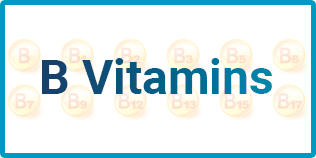Sometimes, making sure your body gets the nutrients it needs to be happy and healthy seems like a full-time job. After all, our bodies are highly complex, dynamic machines. Like most machines and tools, our bodies need plenty of high-quality, potent fuel to operate optimally. Unfortunately, everyday life makes it difficult to get the vitamins, nutrients, amino acids, and antioxidants our bodies need to function correctly.
The truth is most of us live busy lives. That's especially true for busy professionals and working parents who can't take the time to source organic ingredients and nutrient-dense foods. Preparing a delicious dish with lean protein and fresh, yummy veggies sounds great. But do you really have the time to buy, clean, prep, and cook a full meal with all those responsibilities on your plate? A quick trip to the cheeseburger joint is so much easier, especially when you have picky eaters for kids. If you're a parent, you know convincing a child to choose Swiss chard over chicken nuggets is harder than solving a Rubik's cube.
Thankfully, there are much simpler ways to treat your body right with vitamins and nutrients, even if you're constantly on the go. IV vitamin therapy in cityname, state is a new, revolutionary treatment from Juventee that delivers essential nutrients directly into your bloodstream. That way, you can give your body the refined fuel it needs without choking down pills or balancing supplements.
Unlike pills and food, vitamin injections bypass the liver's metabolism, where nutrients are often broken down. When nutrients are processed by your liver, it can decrease the amount your body absorbs. By injecting vitamins directly into the bloodstream, you can be sure that 100% of nutrients are absorbed by your body. Vitamin IV therapy may boost your overall brain and body health in a number of different ways:
- Enhanced Clarity and Focus
- Better Sleep
- Increased Stamina for Exercising
- Enhanced Hydration
- Better Mood
- Expedites Recovery from Nagging Injuries and Strains
Plus, with our NAD+ therapy, patients can improve more of their body's functionality and even prevent muscle deterioration. It might sound like science fiction, but Juventee's IV Vitamin Therapy is as real and effective as it gets. You're probably thinking to yourself, "That's all well and good, but what's in IV drip therapy? Don't worry; we've got you covered.
Our Vitamin Therapy Services
Service Areas
What Ingredients Are in IV Vitamin Therapy in Tenafly, NJ?
IV vitamin therapy is a wonderful choice if you want softer, healthier skin, a better immune system, and even a cure for that early-morning hangover from a weekend out. But if you're like most new patients, you're probably wondering what's actually in this type of IV therapy.
The contents are right there in the name, boosted with some extras to make you look and feel great. Some of the most common ingredients include vitamin C, a wide range of B vitamins, minerals, antioxidants, and amino acids. Let's take a closer look at what these typical ingredients are and why they're included in most vitamin IV therapy sessions:

If you're like most adults, your parents probably loaded you up with vitamin C whenever you had the sniffles or a cold. Your younger self might not have believed it worked, but as it turns out, your parents were onto something. According to doctors, vitamin C is one of the most important vitamins to consume. It might not be the cure-all for the common cold, but it absolutely helps maintain your immune system so you can fight the cold quicker. Also known as ascorbic acid, vitamin C also protects your body from prenatal health issues, cardiovascular problems, eye diseases, and even wrinkly skin.
When your body lacks vitamin C for a long time, you're sure to notice. Though vitamin C deficiency is relatively rare in the U.S., adults who go long periods without it may get sick frequently and suffer from other immune system issues. In extreme cases, people may get scurvy, which causes a litany of issues like joint pain, bleeding gums, and depression.

B vitamins like riboflavin (B2), niacin (B3), folic acid (b9), and cobalamin (B12) play a crucial role in keeping you healthy and maintaining your overall wellbeing. If you want a healthier body, B vitamins are critical, as they are literally building blocks that help preserve your brain functionality, cell metabolism, and energy. For pregnant women, B vitamins in IV drips are especially important because they help your new baby's brain develop while in the womb. B vitamins have also been shown to prevent congenital disabilities. Plus, they help ease feelings of nausea, which is a big bonus for moms and dads alike.
When your body is vitamin B deficient, you're putting yourself at risk of many health problems, such as complications with pregnancy, nervous system disorders, amenia, and gastric cancers.

Like the other vitamins and nutrients on this page, magnesium plays an important part in your body's total health. As a cofactor or helper molecule, magnesium has a role in 600+ bodily functions, including protein formation, nerve function, gene function, muscle movement, and energy production. If you're having a stressful day or week, high-potency magnesium has been shown to have relaxation properties that help calm your nerves and muscles. Unfortunately, most Americans don't get enough magnesium in their diets.
When your body is magnesium deficient, you could be playing with fire. Magnesium deficiency has been linked to chronic health concerns like osteoporosis, diabetes, and even heart disease. If you're feeling unusually weak or suffering from irregular muscle cramps, a vitamin IV session from Juventee could be the solution you need.

Just about every health food and drink in the stores boasts high levels of antioxidants. That's great, but what are they? Antioxidants are substances shown to slow or prevent cell damage from free radicals. Free radicals are unstable molecules linked to inflammation, disease, and forms of cancer. According to the National Library of Medicine, antioxidants also act as hydrogen and electron donors, as well as enzyme inhibitors.
Most humans get some types of antioxidants naturally through eating and drinking. However, IV vitamin therapy is a much more effective way to fight back against free radicals with antioxidants. When your body lacks antioxidants, free radical production increases, which causes oxidative stress - a harmful situation linked to arthritis, cancers, strokes, and Parkinson's disease.

Thankfully, Juventee's IV vitamin therapy in Tenafly, NJ contains antioxidants that may scavenge and reduce the free radicals affecting your health.
Some additional vitamins and nutrients found in most IV vitamin therapies include:
- Calcium
- Amino Acids
- Threonine
- Arginine
- Tryptophan
- Vitamin E
- Vitamin D
- More
What Can I Expect from an IV Vitamin Therapy Session?
All IV vitamin injections are applied here at the Juventee office, where our patients are comfortable and at ease. IV vitamin therapy sessions vary in length, depending on the IV therapy you choose and how many applications you need. Vitamin IV injections are administered quickly, with the patient feeling a small pinch from the needle at the injection site.
Patients should not experience any irritation or adverse effects. Once therapy is over, they may leave and go about their day feeling fantastic. While most patients leave our office feeling great, everyone's experiences are different.
What you feel after IV therapy depends on the vitamins you choose and your unique body composition. Most often, however, patients enjoy IV vitamin benefits instantly since their bodies absorb all of the nutrients provided. For optimal results, we recommend you schedule several vitamin IV therapy sessions to thoroughly care for and cleanse your body.

Are There Other Uses for Juventee's Vitamin IV Therapy?
In the past, IV vitamin therapy in Tenafly, NJ was reserved for sick hospital patients and the ultra-wealthy. Today, millions of health-conscious Americans use IV vitamin drips to give their bodies full-potency vitamins, antioxidants, minerals, and amino acids. Taking supplements is great, especially if you're not treating your body to a healthy diet. In reality, though, supplements and multivitamins only give you a fraction of the benefit.
Juventee's IV vitamin infusions, on the other hand, are applied directly into your bloodstream. That way, all those wonderful vitamins and nutrients bypass your digestive system, giving your body much-needed care in the blink of an eye.
Getting nutrients in an instant is a benefit on its own, but what other advantages does IV vitamin therapy provide patients? Are there other uses for a vitamin IV drip other than getting your daily vitamins? Let's take a look and see.

IV Vitamin Therapy May Help with Your Weight Loss Goals
If you're like most Americans in modern times, you could afford to lose a few pounds. Weight loss is a big topic these days - being overweight puts you at risk for a long list of ailments and diseases, so it makes sense to shed pounds. Of course, that's much easier said than done.
One savvy way health-conscious people use vitamin IV drips is to help kick start their weight loss goals. Juventee's unique vitamin formula contains metabolic boosters that help convert fat into energy, giving you the "go" needed to finish that workout. By jumpstarting your metabolism, your body can break down fat more effectively, helping you maintain a healthy weight.

IV Vitamin Therapy May Help with Nutrient Deficiencies
In hospital and medical settings, IV nutrient drips can help patients who are too sick to eat. Outside of those settings, it can also be a great way to address certain nutrient deficiencies caused by conditions like:
- Colon Cancer
- Celiac Disease
- Crohn's Disease
- Cystic Fibrosis
- Short Bowel Syndrome
Generally, people with the conditions above have a hard time getting the nutrients their bodies need via supplements and diet. Because IV vitamin therapy in Tenafly, NJ bypasses their digestive system, these patients can get nutrients that they otherwise wouldn't get.

IV Vitamin Drips May Boost Energy
Are you sick and tired of relying on teeth-staining coffees and chemical-ridden energy drinks to stay awake and focused? Nutrients like amino acids and B vitamins, found in IV vitamin therapies, give you a natural boost of energy, lessening your need for sugar and caffeine.

IV Vitamin Therapy May Cleanse Free Radicals & Toxins
In addition to helping with weight loss and giving you essential nutrients, vitamin IV therapies may also cleanse your body of damaging toxins and free radicals. Free radicals, in particular, can damage your DNA and speed up the aging process.
The antioxidants in Juventee's IV vitamin therapy help protect your body and its immune system by neutralizing free radicals and eliminating toxins. Some common antioxidants used include:
- Vitamin C
- Alpha-Lipoic Acid
- Glutathione

Vitamin IV Therapy May Reduce Anxiety
Ingredients in IV vitamin drips like magnesium sulfate are great for lowering blood pressure and calming nerves. But magnesium has also been shown to:
- Relax Your Muscles
- Calm Feelings of Anxiety
- Help You Sleep
- Support Your Immune System
- Prevent and Deal with Migraine Headaches
Magnesium sulfate is also a common ingredient in stress-reducing products like Epsom salts as well.

IV Vitamin Therapy in Tenafly, NJ May Help Cure Hangovers
We've all been there before - it's Friday afternoon, and you and your work colleagues decide to leave the office early. One of your co-workers suggests you go to a bar to let off some steam and reflect on the work week. One or two drinks, you promise yourself. The next thing you know, you're three sheets to the wind, singing bad karaoke and making new friends with everyone at the bar.
You had a great time, but now it's Saturday morning, and it feels like a cinderblock was dropped on your head. Instead of grabbing a can of salty V8, why not treat yourself to vitamin IV therapy from Juventee? The hydration provided by our IV vitamin drips helps fight back against hangover symptoms like:
- Headaches
- Muscle Aches
- Nausea
- Sour Stomach
- Dehydration
- Brain Fog
- Fatigue
Fluids from vitamin IVs get to work quick, replenishing the water you lost while you were out partying. Vitamin IVs also have much-needed electrolytes for your body, which may relieve feelings of dizziness, fatigue, and thirst.
Treat Your Body Right with IV Vitamin Therapy from Juventee
If your goal is to nourish your body with nutrients and vitamins, Juventee's IV vitamin therapy in cityname, state is the key you need to unlock success. We believe that balance is key to your health and wellness, which is why our specialists employ the most innovative medical advances in our treatment options and products. Unlike other vitamin IV clinics, our focus is on providing you with a full range of health services to help you reach your full potential.
That way, you can satisfy your aesthetic, physical, and nutritional needs while positively impacting your emotional wellbeing too. If you're on the fence about getting healthy and re-discovering the joys of youth, contact our office today. It would be our pleasure to talk about your concerns and how our preventative, proactive treatments like IV vitamin therapy can help on your journey to health.

Call For Service
 (201) 292-1590
(201) 292-1590
Latest News in Tenafly, NJ
Unoccupied Shabbat table represents hostages in Israel during New Jersey rally
Crystal Cranmorehttps://abc7ny.com/new-jersey-rally-israel-nj-tenafly/13982355/
TENAFLY, New Jersey (WABC) -- There were prayers on Friday for the safe return home of those kidnapped by Hamas. A powerful symbol - an unoccupied table, represented the hostages who are not able to celebrate the Jewish Sabbath with their families."It's really hard, we are broken," said Adi Levy.229 empty seats lined the table for a feast in Tenafly. Among the vacant seats - high chairs - a representation of children who were taken captive by Hamas.One of the hostages is Edan Alexander, 19, who is a graduate of...
TENAFLY, New Jersey (WABC) -- There were prayers on Friday for the safe return home of those kidnapped by Hamas. A powerful symbol - an unoccupied table, represented the hostages who are not able to celebrate the Jewish Sabbath with their families.
"It's really hard, we are broken," said Adi Levy.
229 empty seats lined the table for a feast in Tenafly. Among the vacant seats - high chairs - a representation of children who were taken captive by Hamas.
One of the hostages is Edan Alexander, 19, who is a graduate of Tenafly High School and the son of Israeli parents. He was serving In the Israeli Army near Gaza when the attack happened on October 7.
The families of the missing were surrounded by love and light as hundreds ushered in Shabbat, praying for the hostages' safe return. The Jewish day of rest is celebrated each week from sundown Friday to sundown on Saturday.
"Trying to raise awareness...this isn't over," said organizer Daphna Arad.
U.S. officials have urged Israel to delay a ground invasion to give time for hostage negotiations.
Meanwhile, Israeli leaders said it sent tanks into the Gaza Strip on Thursday night in preparation for the next stages of combat.
"Whatever it takes to destroy the terrorist organization is legit and is right," said community member Orly Chen.
Eshley Omer is a veteran of the Israel Defense Forces.
"If I was here by myself - without kids, I would've been there already," said Omer.
For now, Omer says he is spreading awareness is the least he can do - to help reunite the kidnapped with their families.
"I think of my kids and how lucky I am," says Omer.
ALSO READ | Husband of Cardi B's nail artist charged with setting fire to Bronx salon
----------
* Get Eyewitness News Delivered
* Download the abc7NY app for breaking news alerts
Submit a tip or story idea to Eyewitness News
Have a breaking news tip or an idea for a story we should cover? Send it to Eyewitness News using the form below. If attaching a video or photo, terms of use apply.
Hamas releases some hostages, but others like Edan Alexander of Tenafly, remain captive
Deena Yellinhttps://www.northjersey.com/story/news/2023/11/24/edan-alexander-tenafly-nj-captive-hamas-releases-hostages/71683425007/
2-minute readAlthough some families will soon be reunited with their loved ones who have been held hostage by Hamas in Gaza for more than 48 days, others continue to face an excruciating wait.Many families have not heard from their relatives since Oct. 7 when they were kidnapped. The Red Cross has not visited them ...
2-minute read
Although some families will soon be reunited with their loved ones who have been held hostage by Hamas in Gaza for more than 48 days, others continue to face an excruciating wait.
Many families have not heard from their relatives since Oct. 7 when they were kidnapped. The Red Cross has not visited them and there's been no news of their condition. Some have seen photos of them on social media as they were dragged and taken hostage.
"We have heard nothing," said Amir Hoshen Friday morning.
Hoshen's nephew, Rom Broslavski, was captured at the Nova music festival in southern Israel on Oct. 7. He was working as a security guard and reportedly helped several of the teens escape to safety. In his last phone call with his mother, he told her he loved her and attempted to reassure her that he was safe.
"He's a leader, always volunteering, always trying to help people," Hoshen told NorthJersey.com and The Record last week.
Under the terms of a four-day Israel-Hamas truce, 50 women and children hostages are to be released over the four-day period in return for 150 Palestinian prisoners held in Israeli jails.
Hamas released the first group of hostages on Friday, including Israeli women and children and Thai farm workers, according to the Red Cross.
The hostages included 13 Israelis, according to Israeli media. Thailand also said 12 Thai nationals who had been taken hostage were released Friday. U.S. officials don't expect any Americans to be among the hostages released Friday.
As many as 39 Palestinian prisoners, expected to be women and children, could also be returned to the West Bank and Gaza on Friday.
Edan Alexander of Tenafly remains hostage
Edan Alexander of Tenafly, 19, is a graduate of Tenafly High School who has been described as "fun loving" and a "devoted friend" who enjoys parties, concerts and extreme sports.
He volunteered to serve in the Israel army last year following his high school graduation and was guarding the Gaza border when he was kidnapped on Oct. 7 by Hamas attackers who stormed into Israel, killed some 1,200 people and wounded scores more.
His mother, Yael, said she last spoke to him on the morning of Oct. 7, and he reassured her that he would be okay despite the attack that day. She said she knew something was wrong when he didn't return her calls later that day.
After a week, Israeli officials informed her that Edan had been kidnapped by Hamas. They have repeatedly asked about his whereabouts and well being but there's been no news.
"We have heard nothing. We are praying that all of the hostages will return home," she said at a forum at the Kaplen JCC in Tenafly in early November.
She declined to speak to NorthJersey.com but recently posted on Facebook, "Praying that you will come back us forever healthy and whole! I love you with all my heart."
Tenafly councilman, son released after hearing on child porn charges. Here's what happened
Kaitlyn Kanzlerhttps://www.northjersey.com/story/news/bergen/tenafly/2023/10/18/tenafly-nj-council-president-son-released-court-child-porn-charges/71223416007/
A Tenafly councilman facing calls for his resignation and his son, both accused of possessing a large amount of child pornography will be released from jail, despite the harrowing images described during their detention hearing.The pair appeared in state Superior Court in Hackensack separately on Wednesday f...
A Tenafly councilman facing calls for his resignation and his son, both accused of possessing a large amount of child pornography will be released from jail, despite the harrowing images described during their detention hearing.
The pair appeared in state Superior Court in Hackensack separately on Wednesday for a detention hearing before Judge David Labib.
Jeffrey, 65, and Steven Grossman, 24, will be confined to their home rather than held in jail while they await trial. The Grossmans were charged with second-degree possession of child pornography by the Bergen County Prosecutor's Office after a search of their Tenafly home.
Jeffrey Grossman is a teacher in Rochelle Park and is the Tenafly Borough Council president, and Steven Grossman is a social worker and substitute teacher for the same K-8 district. They were both suspended and are prohibited from contacting staff or students or going on the Rochelle Avenue property, said Sue DeNobile, the Rochelle Park school superintendent.
During the hearing, Assistant Prosecutor Gary Donatello argued that the men should remain incarcerated due to the charges, the length of time they could spend in jail if convicted and the fact that their home is less than 500 feet from an elementary school.
Jeffrey and Steven Grossman's attorneys, Samuel Braverman and Chris DiLorenzo, respectively, argued that the men are not flight risks and there are no indications they would try to intimidate anyone or miss their court dates.
Local:Tenafly High School teacher accuses district of misrepresenting attendance numbers
Labib disagreed with Donatello, finding that the state did not overcome its burden for detention. He ordered the men to be under strict home detention with no electronic monitoring.
They are required to report to pretrial monitoring every week by phone and in person, must appear for all court proceedings, must notify the court of any address or contact information changes, cannot commit any new offenses, cannot own a weapon, must refrain from excessive use of alcohol or drugs, may not leave home except to go to court, must surrender their passports, cannot have any unsupervised contact with any minors and cannot have internet access on any device.
After the state requested it, Labib restricted the Grossmans' access to their front yard and backyard from 8 to 9:30 a.m. and 2 to 3:30 p.m., times when students arrive and are dismissed from school.
During the hearing, Donatello described what some of the images and videos found on the Grossmans' electronic devices depicted.
Over 1,000 depictions of child sexual abuse of boys generally between 10 and 13 were found in a Dropbox used by Steven Grossman, and over 17,500 depictions of younger prepubescent girls were found on Jeffrey Grossman's devices, Donatello said.
The next court date for both men is Nov. 30.
After the charges were announced, Mayor Mark Zinna said he was shocked to learn of the accusations and that it would be in the borough's best interest for Grossman to resign.
Tenafly High School hires football coach with extensive NFL experience
Darren Cooperhttps://www.northjersey.com/story/sports/high-school/football/2023/04/25/tenafly-nj-football-alonos-escalante-named-head-coach/70146134007/
Alonso Escalante went from coaching football in high school to the NFL and back again.The 35-year old Glen Rock native was approved as new head coach at Tenafly by the Board of Education on Monday night. He takes over one of North Jersey’s oldest and proudest programs, but one that hasn’t reached the playoffs since 2009.“We will turn into a winning program by taking it one day at a time,” Escalante said. “It’s all about building a community and a culture. I have to start there....
Alonso Escalante went from coaching football in high school to the NFL and back again.
The 35-year old Glen Rock native was approved as new head coach at Tenafly by the Board of Education on Monday night. He takes over one of North Jersey’s oldest and proudest programs, but one that hasn’t reached the playoffs since 2009.
“We will turn into a winning program by taking it one day at a time,” Escalante said. “It’s all about building a community and a culture. I have to start there. Culture is what you do every day. I am excited about it.”
The Escalante File
Coming out of Glen Rock High School in 2005, Escalante planned to wrestle and play football at Springfield College in Massachusetts, but hurt his back a month before workouts started. His college coach offered him a job as a student assistant coach and his career began.
Escalante graduated from Springfield and got his master's degree from McDaniel College while working as an assistant there. He was selected to receive the Bill Walsh Minority Coaching Fellowship in the NFL, which turned into a two-week internship with the Giants during training camp.
That opened the door to connections that led to assistant coaching jobs with the Oakland Raiders (2011) and Tampa Bay Buccaneers (2012-2013). After 2013, he came back to work at his alma mater and at Fair Lawn.
Back to the pros
Escalante returned to the NFL in 2016 as an offensive assistant the New York Giants. He later spent a year on staff with the Arizona Cardinals (2018) and Cleveland Browns (2019). He worked as an analyst at the University of Missouri early in 2021, then became assistant running backs coach with the Carolina Panthers under Matt Rhule.
Escalante and his wife Jennifer, the Giants' vice president of strategic communications, wanted to settle back in North Jersey. Escalante took a position on the staff at DePaul working under Nick Campanile in a variety of roles, and the Spartans won the Non-Public B state championship in 2022.
When the Tenafly job came open, Escalante thought it was the perfect fit.
“The reason I got into coaching is to use football to make people’s lives better and I mean that in all sincerity,” Escalante said. “That has been my driving force at every level, whether it’s high school or college and that’s what I am going to do here. New Jersey is home to me. High school football is near and dear to me.”
Taking over in Tenafly
Tenafly has been in a difficult spot in the North Jersey football hierarchy with an enrollment that places the school at a high level despite not having many players in the program.
The Tigers went 3-6 in 2022 competing in the Super Football Conference American Red Division after two successful years in the SFC’s Ivy Division for struggling programs. Ivy Division can't play in the state playoffs. Tenafly went 6-4 in the Ivy Red in 2021 and 8-0 in the Ivy White in 2020.
Escalante is already watching Tenafly film (it’s what he loves to do) and working on building a staff. He will be a PE teacher at the school.
“This is a special group,” Escalante said. “We are very excited about getting started working with them. When you take over a program, it all starts with the people and the players. I want to provide them with the best opportunity to be successful on the field and off. The best programs I have been a part of, the players have had just as much success off the field as on. That’s what we will be building here.”
Father and son teachers at NJ school arrested, accused of possessing child porn
Toni Yateshttps://abc7ny.com/new-jersey-nj-teachers-child-porn-tenafly-rochelle-park/13909253/
TENAFLY, New Jersey (WABC) -- Eyewitness News spoke to a few parents whose children attend Midland School - the elementary school where Jeffrey Grossman, 65, taught and his son, Steven Grossman, 24, was a substitute teacher. Parents found out Thursday that father and son were arrested - accused of viewing, downloading, and possessing child pornography.Parents say the elder Grossman accompanied their children on a trip to Washington D.C. back in May."And he confiscated their phones every night. So my fear now was he's looki...
TENAFLY, New Jersey (WABC) -- Eyewitness News spoke to a few parents whose children attend Midland School - the elementary school where Jeffrey Grossman, 65, taught and his son, Steven Grossman, 24, was a substitute teacher. Parents found out Thursday that father and son were arrested - accused of viewing, downloading, and possessing child pornography.
Parents say the elder Grossman accompanied their children on a trip to Washington D.C. back in May.
"And he confiscated their phones every night. So my fear now was he's looking at my kids' pictures - my girls in their bikinis at that young age," said Julie Agatone.
Parents are livid, wanting to know more about the timeline of the investigation by the Bergen County Prosecutors Office. Specifically, they want to know whether the Grossmans were allowed to be around children while investigators were looking into their internet activities.
Besides teaching, Jeffrey Grossman serves as Borough Council President in Tenafly where records say both men live on Downey Drive.
Tenafly Mayor Mark Zinna released a statement that says in part, "I think it is in the best interest of the borough that Mr. Grossman steps down in order that the people's business can continue uninterrupted and without distraction."
Part of a statement from the superintendent to parents in the Rochelle Park school district says of the Grossmans, "They are prohibited from coming to the school for any reason and are prohibited from contacting any student or staff."
Parents say they have plenty of questions for the next school board meeting next week.
Both men appeared before a judge on Friday afternoon. The attorney for the elder Grossman entered a plea of not guilty on his behalf. No plea was entered for his son.
Sign up for our breaking newsletter
Email Address*
Yes! I would like to receive the Breaking News alerts Newsletter. By creating an account, you agree to our Terms of Use and acknowledge that you have read our Privacy Policy and US State Privacy Rights Notice.
*Required Fields
They are due back in court next week.
ALSO READ | NJ family trapped in Israel following Hamas attack
----------
* Get Eyewitness News Delivered
* Download the abc7NY app for breaking news alerts
Submit a tip or story idea to Eyewitness News
Have a breaking news tip or an idea for a story we should cover? Send it to Eyewitness News using the form below. If attaching a video or photo, terms of use apply.
Disclaimer:




